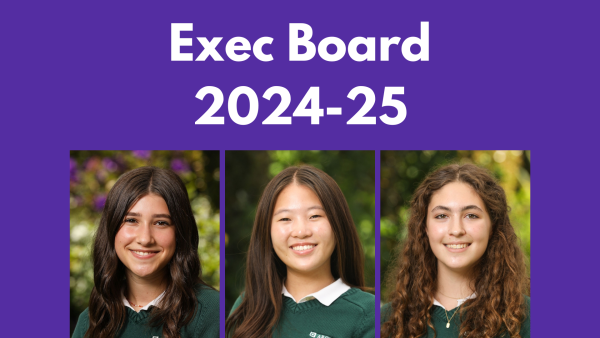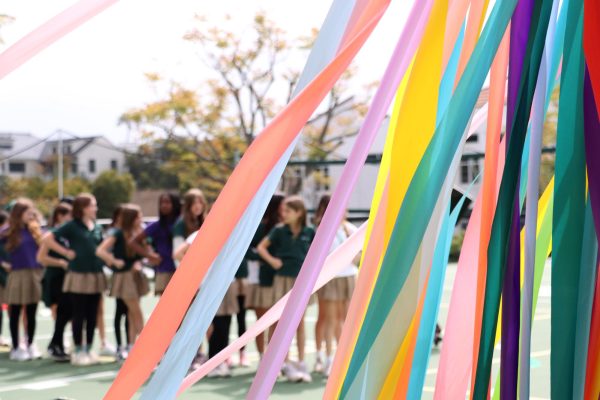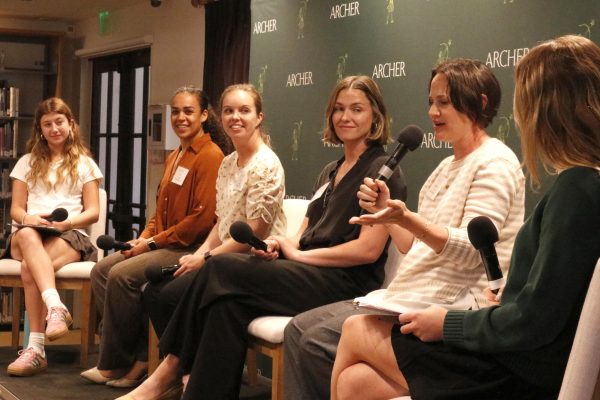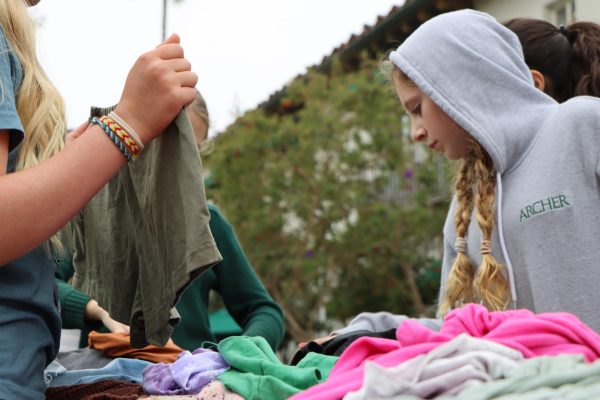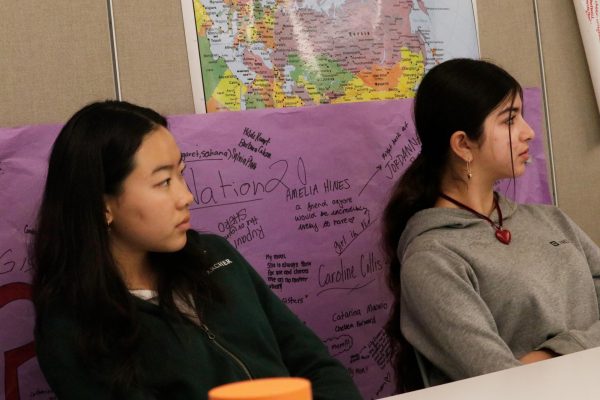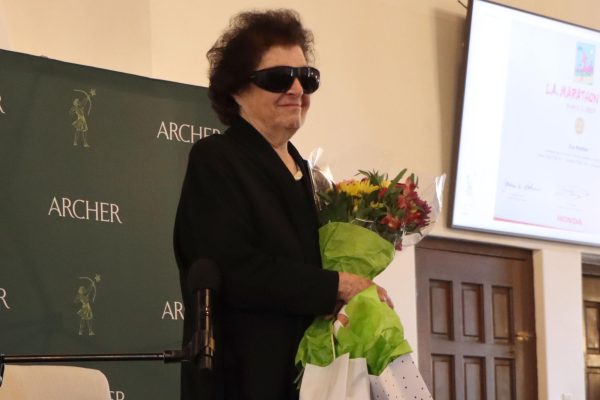Archer community members offer perspectives on final presidential debate
Photo credit: Nyah Fernandez
The second and final presidential debate occurred on Oct. 22 at Belmont University in Nashville, TN. “I think the final presidential debate was much calmer than the first with fewer interruptions which allowed for the American people to hear actual policy discussion from both Trump and Biden,” senior Mackenzie Turner said.
November 1, 2020
Democratic nominee Joe Biden and Republican nominee Donald Trump faced off for the final presidential debate of 2020 before the Nov. 3 election, covering issues such as the coronavirus, the environment and race relations. The debate took place on Thursday, Oct. 22 at Belmont University in Nashville, TN.
On the night of the debate, junior Lexi Tooley was initially excited to hear both candidate’s opinions on the chosen issues. As the debate progressed, Tooley said that her feelings shifted.
“I was shocked at some of the statements that Donald Trump made,” Tooley said. “Particularly ‘I’m the least racist president,’ and what he said about doing the most for the black community. I was very surprised, to say the least.”
Norah Adler, an environmental and sustainability columnist for the Oracle, is pro-environmental legislation. She “wished” that there had been more discussion of the environment during the debate itself.
“I think [the environment] needs to be a bipartisan issue to get legislative change,” Adler said. “Legislative change needs to happen.”
Beth Gold is a history teacher and advisor to the new Artemis Center, a non-partisan political activism group that promotes service-learning. During the Artemis Center’s weekly practicum sessions, Gold engages her students in discussion their participation in the election, social injustice and the Supreme Court nomination.
“I think last night’s debate was much more controlled. Obviously, the mute button had a lot to do with making the conversation more civil a little bit more, back and forth, rather than at talking over each other at the same time,” Gold said. “There was a more civil tone, more controlled conversation”
An issue that was present in the debate surrounded the opening of schools amidst the COVID-19 pandemic. While comfort levels vary, there are a range of approaches being taken.
“I feel like teachers, nationally, their interests have not been taken into account enough. And we are not part of the teachers union are, thankfully, speaking out on behalf of teacher’s interests,” Gold said. “The public has a big interest in getting schools open. But all teachers are not comfortable with that situation, so I’m thankful that I’m not having to make that decision for myself as to what my comfort level would be.”
In terms of the Coronavirus, Tooley saw the differences of opinion between Biden’s and Trump’s action plans.
“With Coronavirus, they had a whole different process on how they would choose to fix this pandemic,” Tooley said. “But I feel like Trump’s policies are directed towards the 1% in white America, while Biden is interested in the whole.”
According to Gold, the debates served as an outlet for students and people to engage in democracy.
“I feel like a silver lining of the past four years has been increased student engagement, student empowerment and student agency. That is always a good thing for people to feel like they can participate in our democracy,” Gold said. “[Students] have a role, they have a path. They have a vision for what they want the country to look like.”




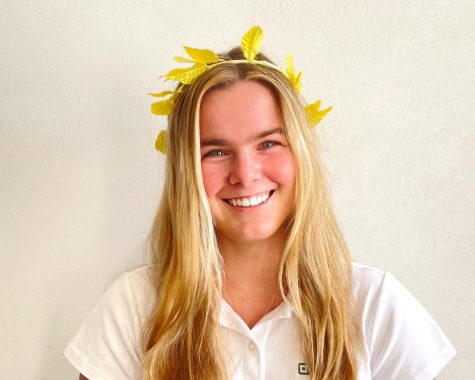






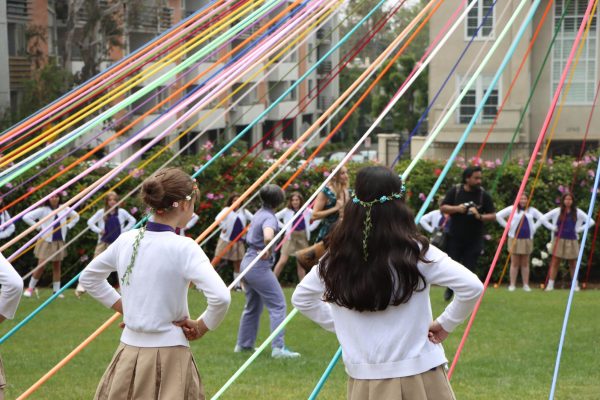
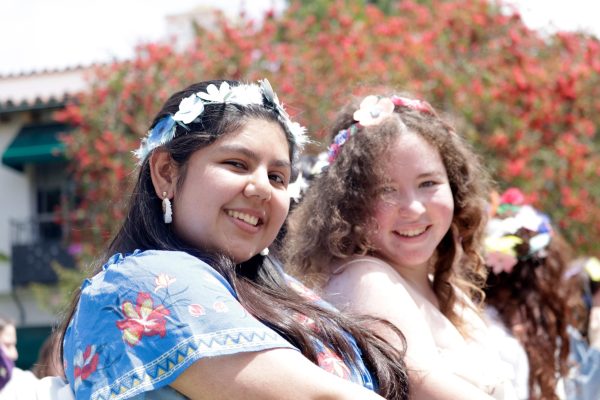
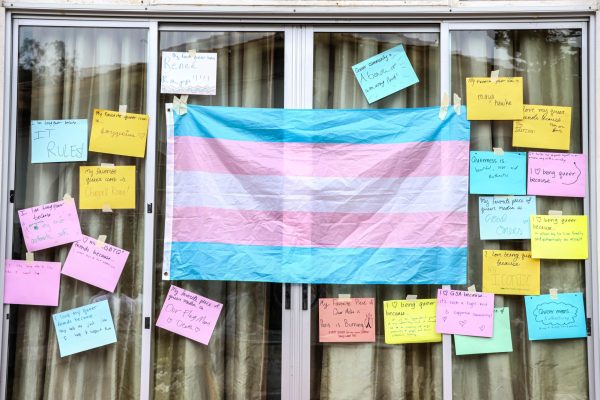
![Seniors laugh as they shoot water across the courtyard, during the annual fountain jump. I [the fountain jump] is really the culmination of your Archer experience, senior Ella Gray said. Especially because youre always around the fountain, at some point, and now you get to be in it.](https://archeroracle.org/wp-content/uploads/2024/05/MG_0817-1-600x400.jpg)
